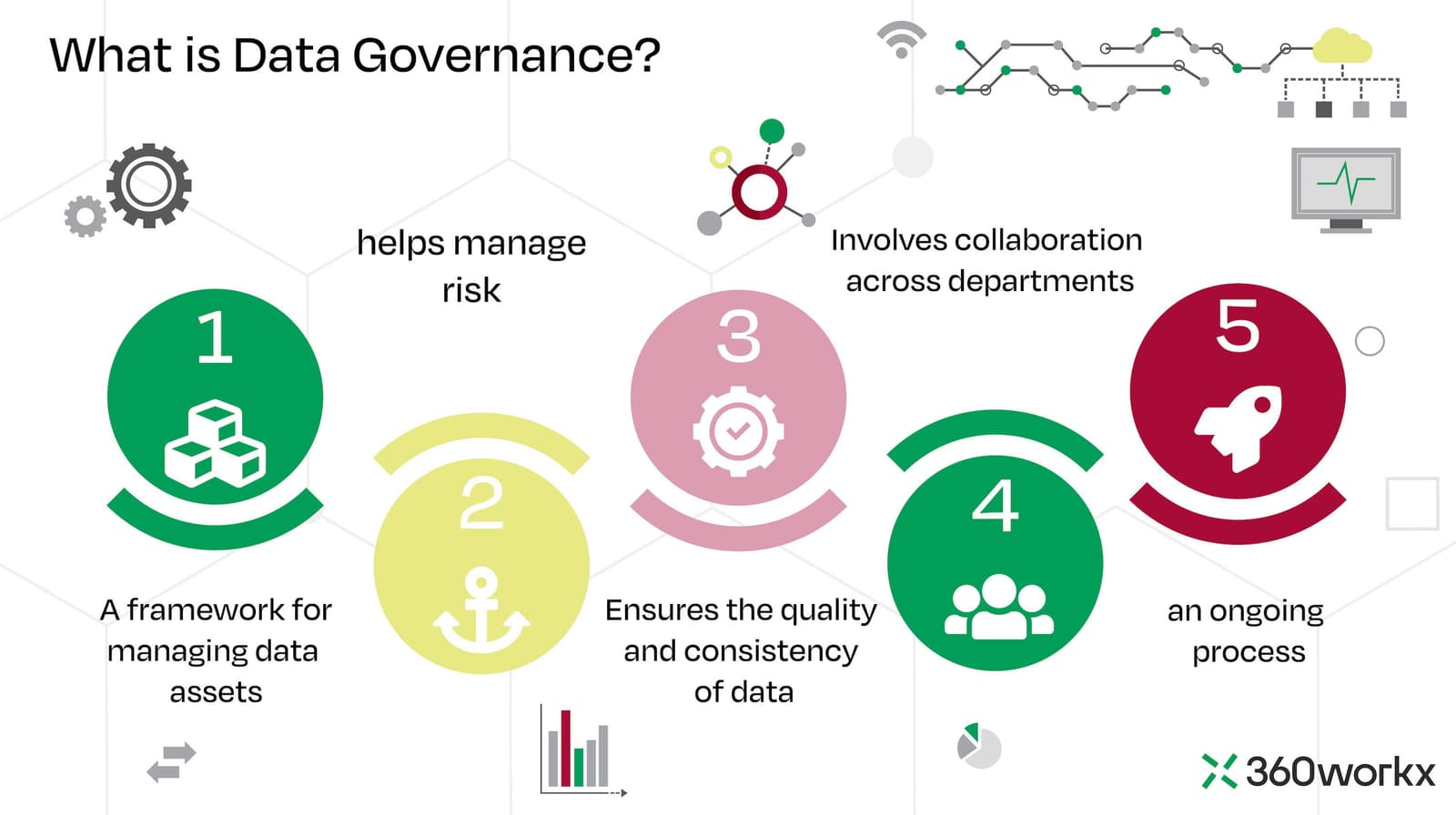- Data governance is a framework for managing data assets: It involves defining policies, procedures, and standards for the collection, storage, use, and dissemination of data within an organization.
- Data governance ensures the quality and consistency of data: It helps organizations establish a shared understanding of data definitions, business rules, and data quality standards to ensure that data is accurate, complete, and consistent.
- Data governance helps manage risk: It ensures that data is properly secured, protected, and governed, reducing the risk of data breaches, compliance violations, and other types of data-related risks.
- Data governance involves collaboration across departments: Effective data governance requires collaboration between business units, IT, legal, compliance, and risk management to ensure that data governance policies align with business needs and goals.
- Data governance is an ongoing process: Data governance is not a one-time event, but an ongoing process that requires regular review, monitoring, and adjustment to ensure that it remains relevant and effective over time.
